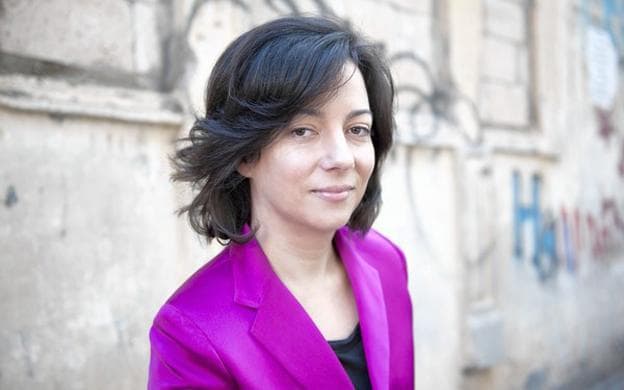Advertisement
Reporter's Notebook: On The Road With Secretaries Of State
Resume
As the BBC's State Department correspondent, Kim Ghattas has traveled hundreds of thousands of miles with U.S. secretaries of state, including Condoleezza Rice, Hillary Clinton and most recently John Kerry.
Ghattas brings an interesting perspective to her job covering the world of diplomacy. She was born in Beirut, Lebanon, and grew up there during the Lebanese Civil War in the 1970s and 80s.
She shares her reporter's notebook with Here & Now's Robin Young.
Interview Highlights: Kim Ghattas
On the significance of the nuclear talks
"The nuclear talks are not just about Iran's nuclear program. I really feel that this is about how the relationship between the U.S. and Iran could evolve. And this has the potential of transforming the Middle East. We don't know yet whether the Iranian leadership has decided to change its regional calculations, whether they've decided to do things differently when it comes to Syria, for example, or Hezbollah. At the moment, the Supreme Leader, Ayatollah Ali Khamenei, decided that it was better for his country to find a way to undo the sanctions, and they're willing to negotiate about their nuclear program and show good faith on that front in order to save the Iranian economy."
On her perspective
"I've been on both ends. I grew up in Beirut on the receiving end of decisions made in Washington, whether I agreed with them or not. And then I became a journalist in Beirut, and then five years ago I moved to the U.S. and became the BBC's State Department correspondent. In essence, I suddenly had a front row seat to the making of that same foreign policy. I could ask some of the questions that haunted me as a child to secretaries of state, and ask them, 'But what about Syria? How are you doing it? Why aren't you intervening, or why should you, or why should you not?'"
On implications of U.S. intervention in Syria
"When you are living through a war, you are hoping that it can come to an end. I still see people in Syria and in other places wonder why the U.S. doesn't just swoop in and put an end to the conflict in Syria. And it's very difficult to explain to people all of the complexities that the U.S. has to take into consideration when it's making decisions like that. Every decision that the U.S. makes has a domino effect on other issues that it's dealing with. We now know that the impact of a strike on Syria — for example in September, when President Obama was deciding whether to strike or not because of the use of chemical weapons inside Syria — that could have had an impact on those secret talks with Iran. So everything is connected, but really it's very hard to rationalize that when you're living through a conflict yourself."
Guest
- Kim Ghattas, State Department correspondent for the BBC and author of "The Secretary: A Journey with Hillary Clinton from Beirut to the Heart of American Power." She tweets @BBCKimGhattas.
This segment aired on December 5, 2013.